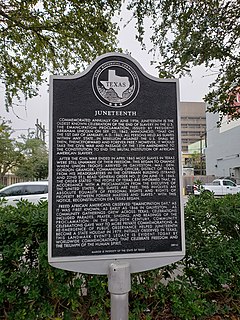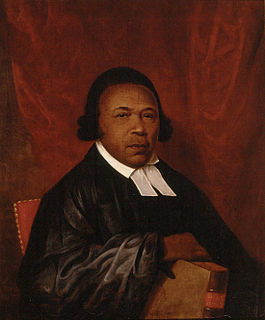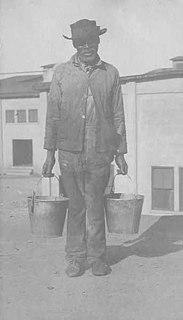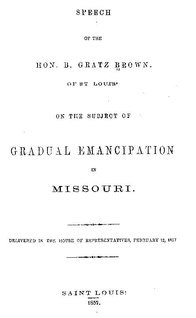
The Underground Railroad was a network of secret routes and safe houses established in the United States during the early to mid-19th century. It was used by enslaved African Americans to primarily escape into free states and Canada. The scheme was assisted by abolitionists and others sympathetic to the cause of the escapees. The enslaved who risked escape and those who aided them are also collectively referred to as the "Underground Railroad". Various other routes led to Mexico, where slavery had been abolished, and to islands in the Caribbean that were not part of the slave trade. An earlier escape route running south toward Florida, then a Spanish possession, existed from the late 17th century until approximately 1790. However, the network now generally known as the Underground Railroad was formed in the late 18th century. It ran north and grew steadily until the Emancipation Proclamation was signed by President Abraham Lincoln. One estimate suggests that, by 1850, 100,000 enslaved people had escaped via the network.

Juneteenth – also known as Freedom Day, Jubilee Day, Liberation Day, and Emancipation Day – is a holiday celebrating the emancipation of those who had been enslaved in the United States. Originating in Galveston, Texas, it is now celebrated annually on June 19 throughout the United States, with varying official recognition. It is commemorated on the anniversary date of the June 19, 1865 announcement of General Order No. 3 by Union Army general Gordon Granger, proclaiming freedom from slavery in Texas.

Absalom Jones was an African-American abolitionist and clergyman who became prominent in Philadelphia, Pennsylvania. Disappointed at the racial discrimination he experienced in a local Methodist church, he founded the Free African Society with Richard Allen in 1787, a mutual aid society for African Americans in the city. The Free African Society included many people newly freed from slavery after the American Revolutionary War.
Maafa, African Holocaust, Holocaust of Enslavement, or Black Holocaust are political neologisms popularized from 1988 onwards and used to describe the history and ongoing effects of atrocities inflicted on African people, particularly when committed by non-Africans which continues to the present day through imperialism, colonialism and other forms of oppression. For example, Maulana Karenga (2001) puts slavery in the broader context of the Maafa, suggesting that its effects exceed mere physical persecution and legal disenfranchisement: the "destruction of human possibility involved redefining African humanity to the world, poisoning past, present and future relations with others who only know us through this stereotyping and thus damaging the truly human relations among peoples".

African American Lives is a PBS television miniseries hosted by historian Henry Louis Gates Jr., focusing on African American genealogical research. The family histories of prominent people of African American descent are explored using traditional genealogic techniques as well as genetic analysis.

The Reconstruction Amendments are the Thirteenth, Fourteenth, and Fifteenth amendments to the United States Constitution, adopted between 1865 and 1870. The Reconstruction amendments were a part of implementing the Reconstruction of the American South after the war.

Contemporary slavery, also known as modern slavery or neo-slavery, refers to institutional slavery that continues to occur in present-day society. Estimates of the number of slaves today range from around 38 million to 46 million, depending on the method used to form the estimate and the definition of slavery being used. The estimated number of slaves is debated, as there is no universally agreed definition of modern slavery; those in slavery are often difficult to identify, and adequate statistics are often not available. The International Labour Organization estimates that, by their definitions, over 40 million people are in some form of slavery today. 24.9 million people are in forced labor, of whom 16 million people are exploited in the private sector such as domestic work, construction or agriculture; 4.8 million persons in forced sexual exploitation, and 4 million persons in forced labor imposed by state authorities. 15.4 million people are in forced marriage.

Black women are women who are of Sub-Saharan African and Afro-diasporic descent. The term black women is both a multi-faceted cultural identity and a social construct with different meanings in different places.

Douglas A. Blackmon is an American writer and journalist who won a Pulitzer Prize in 2009 for his book, Slavery by Another Name: The Re-Enslavement of Black Americans from the Civil War to World War II.
The comprehensive Negro Act of 1740 was passed in the Province of South Carolina, during colonial Governor William Bull's time in office, in response to the Stono Rebellion in 1739.
Vincent Brown is Charles Warren Professor of History, Professor of African and African-American Studies, and Director of the History Design Studio at Harvard University. His research, writing, teaching, and other creative endeavors are focused on the political dimensions of cultural practice in the African Diaspora, with a particular emphasis on the early modern Atlantic world.

Slavery in Virginia began with the enslavement of Native Americans, during the early days of the English Colony of Virginia and through the late eighteenth century. They primarily worked in tobacco fields. Africans were first brought to Colonial Virginia in 1619, when 20 Africans from present-day Angola arrived in Virginia on the ship The White Lion. About that time, Native Americans were also captured and enslaved.

African Americans formed a unique ethnic identity in Texas while facing the problems of societal and institutional discrimination as well as colorism for many years. The first person of African heritage to arrive in Texas was Estevanico, who came to Texas in 1528.
The African Americans: Many Rivers to Cross is a six-part documentary miniseries written and presented by Henry Louis Gates Jr. It aired for the first time on the Public Broadcasting Service (PBS) in the fall of 2013, beginning with episode 1, "The Black Atlantic (1500–1800)", on October 22, 8–9 p.m. ET on PBS, and every consecutive Tuesday through to episode 6, "A More Perfect Union (1968–2013)", on November 26. The companion book to the series, The African Americans: Many Rivers to Cross, was co-authored by Gates and historian Donald Yacovone. The two-DVD set of the series was released in January 2014.

Henry Louis "Skip" Gates Jr. is an American literary critic, professor, historian, filmmaker, and public intellectual who serves as the Alphonse Fletcher University Professor and Director of the Hutchins Center for African and African American Research at Harvard University. He rediscovered the earliest African-American novels, long forgotten, and has published extensively on appreciating African-American literature as part of the Western canon.
Lois Horton is an American historian.

This article documents the history of African-Americans in Philadelphia.

Gradual emancipation was a legal mechanism used by some states to abolish slavery over a period of time, such as An Act for the Gradual Abolition of Slavery of 1780 in Pennsylvania.

History of slavery in Colorado began centuries before Colorado achieved statehood when Spanish colonists of Santa Fe de Nuevo México (1598–1848) enslaved Native Americans, called Genízaros. Southern Colorado was part of the Spanish territory until 1848. Comanche and Utes raided villages of other indigenous people and enslaved them.













